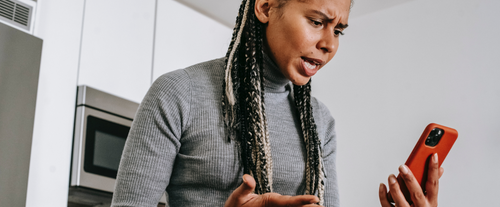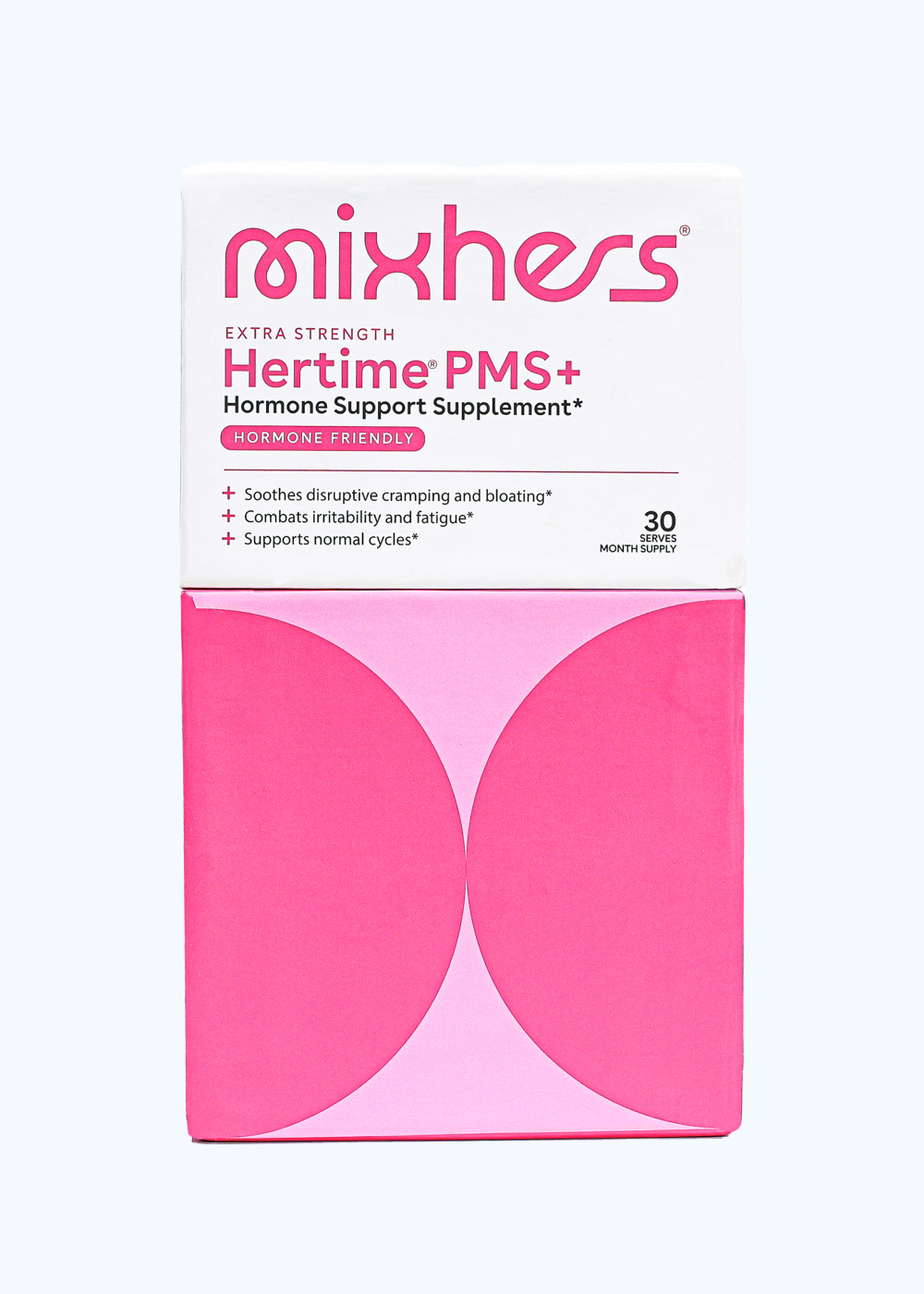Now that we know what causes us bloating during your period, it’s time to talk about how to reduce bloating during period. Here are effective remedies you can try to stop period bloating:
Engaging in gentle physical activity like walking can help stimulate digestion and alleviate bloating.Yoga and stretching is also a great way to move the body and relieve tension in the abdominal area and improve blood circulation, potentially reducing bloating.
Eating slowly and chewing food thoroughly can help prevent swallowing excess air, which can lead to bloating.
Eating smaller, more frequent meals throughout the day rather than large meals can aid digestion and prevent excessive bloating.
Here’s how you can massage your abdomen when bloating is getting the best of you:
Breathing: Take a few deep breaths to help relax your body and mind. Deep, slow breaths can also aid in releasing tension and promoting relaxation.
Starting Position: Place your hands on your abdomen, just below your ribcage. Your fingers should be pointing toward your pelvis, and your palms should be flat against your abdomen.
Gentle Pressure: Apply gentle pressure with your hands and begin to make small circular motions. Use a light touch and let your fingertips move in a clockwise direction. The clockwise motion follows the natural movement of the digestive tract.
Gradual Movement: As you massage, move your hands down your abdomen in a slow and deliberate manner. Keep your movements gentle and comfortable.
Focus on Bloating Areas: If you're feeling particularly bloated in specific areas, spend a bit more time gently massaging those regions. This can help stimulate blood flow and encourage the movement of trapped gas.
Stay Relaxed: Throughout the massage, continue taking deep breaths and focus on relaxing your muscles. The more relaxed you are, the more effective the massage can be in reducing bloating.
Duration: Aim for about 5 to 10 minutes of massage. You can repeat this process a few times a day if needed.
Finish: Once you're done, take a moment to rest and take a few more deep breaths. You can also use this time to apply a warm compress or heating pad to your abdomen for added relaxation.
Remember, an abdominal massage is meant to be gentle and soothing. If you experience any discomfort or pain during the massage, stop immediately. If your bloating persists or is accompanied by severe pain or other concerning symptoms, it's important to consult a healthcare professional for proper evaluation and guidance.
Gentle abdominal massages can stimulate the digestive system and provide relief from bloating.
Both caffeine and alcohol can contribute to dehydration and exacerbate bloating, so moderating their intake might be helpful.
Drink lots of water (yes, water retention contributes to period bloat, but your body is more likely to flush the water out when you’re drinking a lot of it). Dehydrating yourself in an attempt to get rid of bloating is unhealthy, dangerous, and will only make your body hold onto water even longer.
Sip raspberry leaf, peppermint, chamomile, or ginger tea. These ingredients can all help minimize period bloating and other period symptoms. This organic, plant-based PMS supplement can be mixed with hot water to make a tea and specifically helps ease bloating and other PMS symptoms, such as menstrual cramps and mood swings. There are also a variety of yummy flavors that are great even if you’re not a tea drinker: juicy peach, pom mango, peach passion, coconut lime, strawberry lemonade, and raspberry refresher.
Incorporating a daily organic supplement is a great way to ensure you’re addressing the root cause of PMS-related symptoms — hormone imbalance — rather than just putting a bandaid on them each month.
Carbonated beverages can contribute to gas buildup and bloating, so it's best to opt for non-carbonated options, especially since a lot of women report being gassy before their period.
Avoid salty foods and refined carbohydrates in the days leading up to your period. Excess salt intake can lead to water retention and bloating, and refined carbohydrates — including foods made from white flour and added sugars — have a high glycemic index. This means they cause a rapid spike in blood sugar levels, followed by a quick drop, leading to fluctuations in energy and mood.
Here’s a list of salty foods and refined carbohydrates to avoid:
- White bread
- Pizza dough
- Pasta
- Pastries
- White flour
- White rice
- Sweet desserts
- Breakfast cereal
- Canned entrees
- Bacon
- Ham
- Sausage
- Anchovies
- Salted nuts
Try natural diuretics to help you maintain normal bowel movements before and during your period. Natural diuretic foods are great for fiber content, digestive health, and hydration.
Fiber Content: Many natural diuretic foods are also rich in dietary fiber. Fiber plays a crucial role in promoting healthy digestion by adding bulk to the stool and preventing constipation. When you consume foods high in fiber, they help soften the stool, making it easier to pass through the intestines and reducing the likelihood of constipation.
Digestive Health: Natural diuretic foods can provide essential nutrients and antioxidants that support digestive health. They can help regulate the gut environment and encourage the growth of beneficial gut bacteria, which in turn can contribute to regular bowel movements.
Hydration: Diuretic foods often have a high water content, which can help keep you hydrated. Proper hydration is essential for maintaining healthy bowel movements. When the body is adequately hydrated, it supports the movement of food through the digestive tract, preventing stool from becoming hard and difficult to pass.
Here’s a list of natural diuretic foods to add to your diet:
- Parsley
- Celery
- Garlic
- Asparagus
- Cucumber
- Watermelon
- Ginger
- Lemon
- Pineapple
- Banana
Eating potassium-rich foods during your period can be particularly beneficial due to the physiological changes that occur in your body during this time. Potassium is an essential mineral that plays a crucial role in maintaining fluid balance, muscle function, and overall health.
Here's how potassium helps your body specifically during your period:
Fluid Balance: Potassium is an electrolyte that helps regulate the balance of fluids in and out of cells. Adequate potassium intake can help counteract the effects of sodium (salt) and reduce water retention, which is a common concern during the menstrual cycle. By maintaining proper fluid balance, potassium-rich foods can help alleviate bloating and swelling.
Muscle Relaxation: Potassium is essential for proper muscle function, including the muscles of the uterus. Menstrual cramps are caused by the contraction of uterine muscles. Adequate potassium levels can contribute to smooth muscle relaxation, potentially reducing the severity of cramps and discomfort.
Potassium is essential for proper muscle function, including the muscles of the uterus. Menstrual cramps are caused by the contraction of uterine muscles. Adequate potassium levels can contribute to smooth muscle relaxation, potentially reducing the severity of cramps and discomfort.
Blood Pressure Regulation: Potassium plays a role in regulating blood pressure by counteracting the effects of sodium. High sodium intake can lead to elevated blood pressure, which may exacerbate bloating and discomfort during menstruation. Consuming potassium-rich foods can help mitigate the impact of sodium on blood pressure, contributing to a healthier cardiovascular system.
Energy Levels: During your period, hormonal changes can lead to mood swings, fatigue, and energy fluctuations. Potassium supports proper nerve function and helps maintain the body's electrolyte balance, which can have a positive impact on energy levels and overall mood.
Here’s a list of potassium-rich foods you can add to your diet, especially during your period.
- Avocado
- Spinach
- Yogurt
- Orange
- Tomatoes
- Sweet potato
- Cantaloupe
- Salmon
Take birth control if it makes sense for you. Birth control can help stabilize irregular periods and minimize bloating and other period-related symptoms. However, while birth control methods offer various benefits, they also come with potential drawbacks that individuals should consider. It's important for individuals to have informed discussions with healthcare providers to choose if birth control aligns with their health needs and lifestyle.
Balance your hormones with natural, earth-grown supplements. Organic plant-based supplements like Hertime are made for just this. When addressing period bloating and other PMS symptoms, the most important action to take is balancing your hormones. There are a slew of remedies to get rid of period bloating fast, but if you’re not addressing the root cause, these symptoms will keep coming back.
With supplements like Hertime, you’re addressing the root cause of hormone imbalance instead of putting a temporary fix on a more serious body function. Hertime specifically provides the essential micronutrients our bodies may be missing, even when eating a well-balanced diet. The nutrients include white peony root, Chinese licorice, Siberian ginseng, dong quai root, and giant kelp leaf. Hertime’s holistic herbal supplement was created by Cody Sanders, the Co-Founder of Mixhers who has a background in Chinese Medicine.












